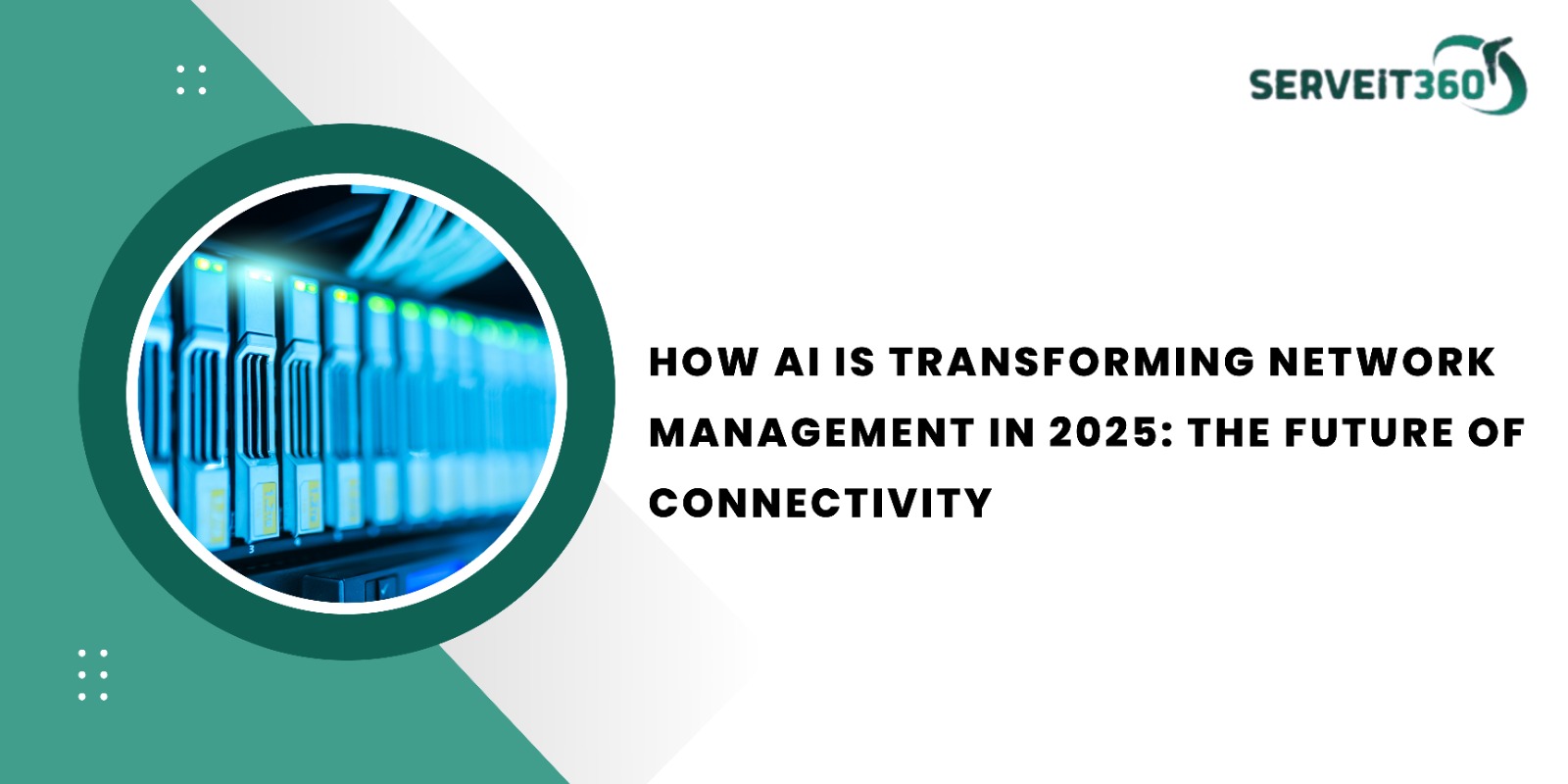Think about the last time your internet connection dropped during an important meeting. Frustrating, right? Now, imagine a world where networks can fix themselves before problems even occur. No more dropped calls, no more buffering videos, and no more IT teams scrambling to fix outages. Sounds like a dream? Well, with AI-driven network management, that dream is becoming a reality.
Network management has always been a challenge, but in 2025, it’s more complex than ever. Businesses rely on multiple cloud providers, employees work from anywhere, and cybersecurity threats evolve daily. Traditional network management methods just can’t keep up. That’s where AI steps in—bringing automation, intelligence, and predictive capabilities to keep everything running smoothly. Let’s dive into how AI is reshaping connectivity and why businesses should embrace it.
Why Traditional Network Management is Falling Behind
Let’s be honest: networks today are a mess. With companies using a mix of on-premise servers, cloud platforms, and remote connections, IT teams are juggling too many variables. Here are some of the biggest challenges they face:
Key Challenges in Network Management
| Challenge | Description |
|---|---|
| Rising Cybersecurity Threats | Hackers are getting smarter, and cyberattacks are more sophisticated than ever. Traditional security measures aren’t enough. |
| Frequent Downtime & Performance Issues | Slow or unreliable networks lead to massive productivity losses. Legacy monitoring tools detect issues too late. |
| Managing Multi-Cloud & Hybrid Networks | Businesses operate across multiple cloud platforms, making security and connectivity management a challenge. |
| Scalability Struggles | Expanding networks while maintaining efficiency and security is increasingly difficult. |
| IT Skill Shortages | There’s a shortage of skilled IT professionals to manage complex network environments. |
If any of this sounds familiar, you’re not alone. The good news? AI can help solve these problems.
How AI is Revolutionizing Network Management
AI is no longer just a buzzword—it’s actively changing the way businesses manage their networks. Here’s how AI-driven solutions are making networks smarter, faster, and more secure:
1. Predictive Network Maintenance and Self-Healing Systems
Instead of waiting for problems to occur, AI analyzes network performance in real time and predicts potential failures before they happen. If an issue arises, AI can automatically reroute traffic, adjust bandwidth, or deploy patches—often before users even notice a problem.
2. AI-Powered Cybersecurity
Cyber threats evolve daily, but so does AI. Machine learning models can detect unusual behavior patterns, identify potential threats, and stop attacks before they cause damage. AI-powered security tools can:
- Detect and respond to threats in milliseconds
- Identify phishing attempts and suspicious network activity
- Automatically update security protocols based on emerging threats
3. Smart Traffic Optimization and Bandwidth Management
Ever noticed how your video calls lag when too many devices are online? AI fixes that. It dynamically allocates bandwidth, ensuring mission-critical applications (like Zoom meetings or cloud-based tools) get priority over less essential traffic.
4. AI in 5G and Beyond
As 5G adoption grows, AI is playing a crucial role in managing ultra-fast, low-latency networks. AI helps:
- Improve network slicing, allowing businesses to allocate dedicated bandwidth for specific applications.
- Reduce latency for time-sensitive applications (like autonomous vehicles and telemedicine).
- Enhance security for high-speed data transfers.
5. Automating Multi-Cloud and Hybrid Network Management
Managing multiple cloud environments is overwhelming, but AI simplifies it. AI-driven network management tools can:
- Automatically configure and optimize cloud network settings
- Improve visibility across hybrid and multi-cloud deployments
- Identify inefficiencies and suggest cost-saving optimizations
AI vs. Traditional Network Management: A Comparison
| Feature | Traditional Networks | AI-Driven Networks |
| Issue Detection | Reactive (after failure) | Proactive (predicts failures) |
| Security Management | Manual updates & monitoring | AI-driven real-time protection |
| Performance Optimization | Fixed configurations | Dynamic, self-adjusting traffic management |
| Scalability | Labor-intensive expansion | Automated, AI-assisted scaling |
| Operational Costs | High due to human intervention | Reduced through automation |
The Future of AI-Driven Network Management
Looking ahead, AI’s role in networking will only grow stronger. Here’s what we can expect in the near future:
1. Fully Autonomous Networks
AI-driven systems will become more independent, requiring little to no human intervention. Networks will self-optimize, self-heal, and self-secure in real time.
2. AI-Powered Network Slicing
Businesses will be able to create dedicated network segments for different applications. For example, hospitals can allocate guaranteed bandwidth for telemedicine, while banks can secure dedicated networks for financial transactions.
3. AI-Integrated Quantum Networks
As quantum computing advances, AI will help manage the complexity of next-gen secure networking, enabling ultra-fast and highly secure data transfers.
4. Edge AI for Faster Decision-Making
Instead of relying on centralized cloud servers, AI will process data at the network edge, reducing latency and improving performance for IoT devices, smart cities, and industrial automation.
How Businesses Can Prepare for the AI-Driven Future
The shift toward AI-powered networking isn’t just inevitable—it’s already happening. Here’s how businesses can stay ahead:
- Invest in AI-based network monitoring tools to gain real-time insights and predictive analytics.
- Adopt AI-enhanced cybersecurity solutions to proactively defend against emerging threats.
- Train IT teams on AI-powered automation to bridge the skills gap and ensure smooth adoption.
- Leverage AI-driven SD-WAN solutions for intelligent traffic management across cloud and on-premises networks.
Conclusion: AI is the Future of Network Management
AI isn’t just improving network management—it’s redefining it. Businesses that embrace AI-driven solutions will benefit from better security, enhanced performance, and reduced operational costs. Those that don’t? They risk falling behind in an increasingly connected world.
So, the big question is: Is your business ready for AI-powered networking?


